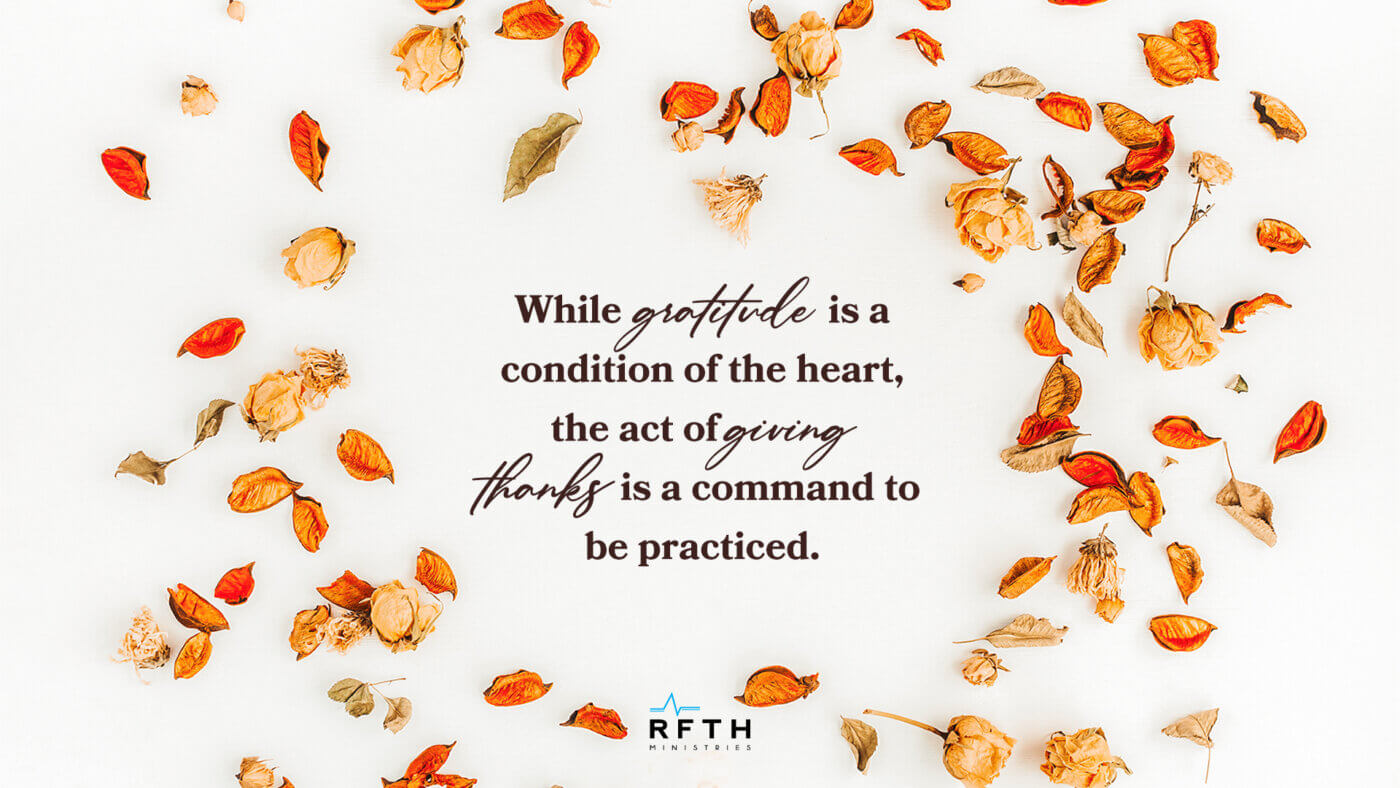
“Every generous and every perfect gift is from above….” James 1:17
I was 33 years old before I drank my first cup of coffee.
Until then, my morning beverages waffled between Diet Pepsi and the very occasional glass of water. But I had a dream of someday sitting on the back porch with my wife, who loved and loves coffee, on a cold winter morning, enjoying a cup of joe together.
So I started drinking coffee.
It was terrible. And then, after a few weeks, it was still terrible.
Still, I kept drinking it, and in time, I not only began to tolerate the taste; I actually began to enjoy it. I suppose you could say that I drank my way into drinking coffee.
In a similar way, I’m wondering if it’s possible for us thank our way into thankfulness?
This is a real question this Thanksgiving week because many of us might not feel particularly thankful. Maybe your year has been filled with more loss than gain, more tears than laughter, and more struggle than triumph. Of course, you know deep down that there are many things for which you should be thankful, but you’re just not seeing – or feeling – any of them.
So the question remains, can you thank your way into thankfulness, or is doing so disingenuous and fake?
1. True gratitude is rooted not in circumstance but in the character of God.
To answer that question, at least in part, there are a couple of things that might be helpful to remember: When we think about giving thanks, our minds drift most often to what’s happening or not happening in our lives. True enough, we can and should give thanks to God for our present circumstances, for “every generous and every perfect gift is from above” (James 1:17). But there is a deeper, more lasting kind of gratitude that can only be experienced when it’s rooted in God’s character. This is what the psalmist reminds us of in the refrain that echoes through Psalm 136 – we should give thanks to the Lord, for He is good, and His love endures forever.
2. While gratitude is a condition of the heart, the act of giving thanks is a command to be practiced.
Who are those that have truly experienced the loving character of God? It’s those who believe in the most full evidence of that character – those who have looked and believed on the cross of Jesus, where God’s character is on full display. For that reason, the basis of true gratitude is an authentic experience of the saving grace of Jesus Christ. Without that, no amount of thanking God for safety, prosperity, health, or anything else will make us experience true gratitude.
If we are firmly rooted and established in the love of God through Christ, then giving thanks is not an issue of emotion as much as it is an issue of obedience. “Rejoice in the Lord always. I will say it again: Rejoice!” says the apostle (Philippians 4:4). This is not a suggestion; it’s not a helpful hint for happiness. It is a command. Many such commands are found throughout the Bible, each one telling us, not suggesting, that we give thanks.
For the Christian, then, thanksgiving becomes a discipline to practice on those days and during those seasons when we don’t feel particularly grateful for anything that’s happening in our lives. When we choose to obey the command, not just once but over and over again, we’ll find that our souls will be lifted, and then our emotions will follow.
So can you thank your way into thankfulness?
Yes, I believe you can, but only if the foundation for that thankfulness is the cross and the empty grave. Without that, thankfulness will always ring hollow and feel slightly shallow. Like a rock that keeps telling itself that it’s made of flesh, our hearts do not have the ability to change themselves. But having been altered by Jesus, those same hearts can practice thankfulness, awakening a condition of gratitude that is only born in us by appreciating what He’s done on our behalf.
Happy Thanksgiving!
Written by Michael Kelley, Guest Contributor
To read more of Michael’s writing, check out his daily blog, Forward Progress http://michaelkelley.co/






